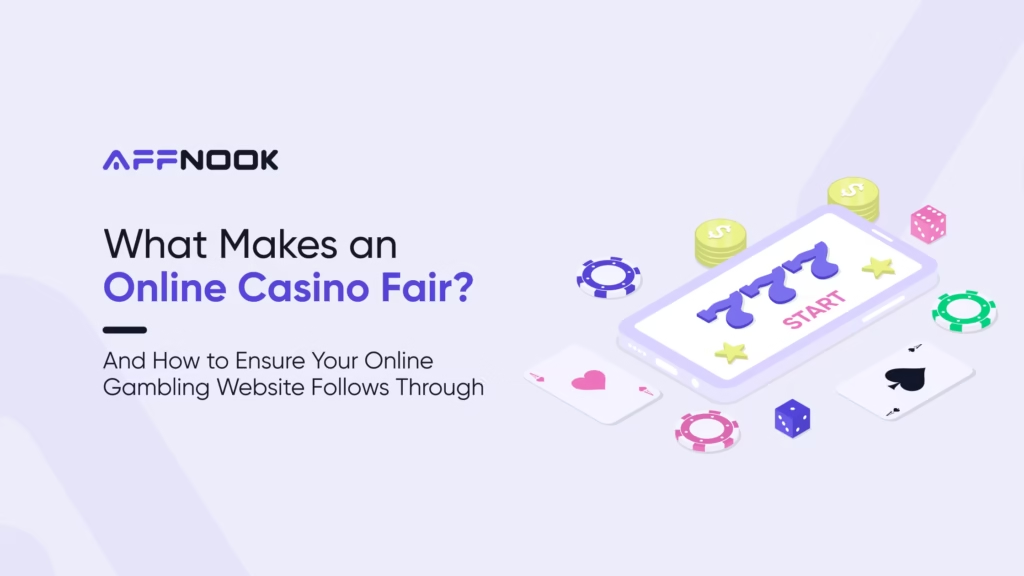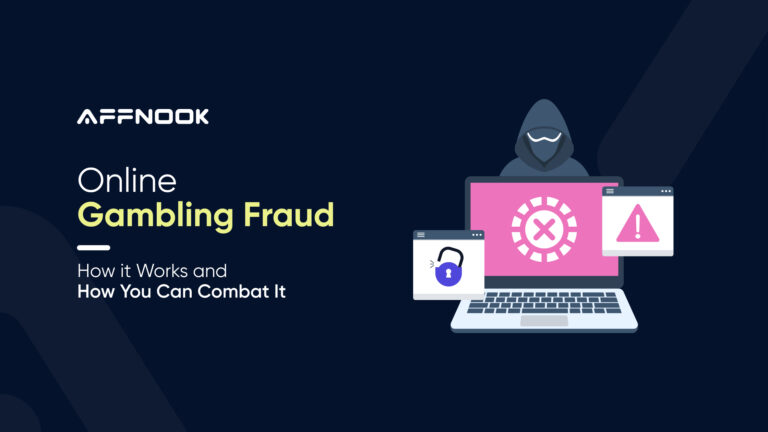When a player lands on your website, what’s the most important factor that’s going to make sure they stick around, after their first game or bet?
The answer is: fairness.
If you’ve rigged the outcomes to ensure the house always wins, or you’re using algorithms to get users to never have a fair chance of winning, it is going to become obvious through gameplay.
And when users spot such instances, it leaves a sour taste for them. Not only will they never return — they’ll also poison the well for your brand. The word-of-mouth alone is going to have a devastating impact on your iGaming website’s traffic.
The true impact of having ‘fairness’ built into your gambling website cannot be overstated. The advantages are multi-layered:
- Extended lifetime value, while directly impacts revenue
- Better retention, which can directly reduce CAC
- Brand protection (and trust building)
An online gambling website has potential to keep players engaged, without being misleading or poor in conduct. Following the basic principles of ethical behaviour in backend algorithms has incredible power to enrich your business with front-end credibility.
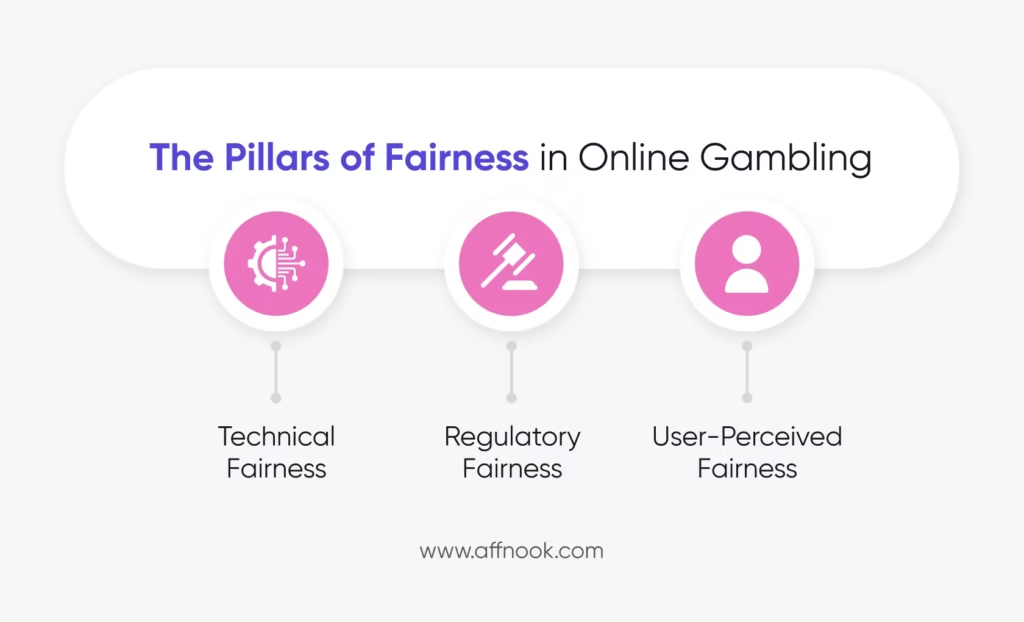
This process happens in layers. Let’s peel them back and understand how they come together.
Fair Play Tech: RNGs and RTP Transparency
Now that the business value offered by fairness is clear, let’s examine how the mechanisms enforcing fairness come into play.
It all begins when you’re first building your online gambling business. You go through the common issues that every operator or brand has faced at some point:
- Deciding on an iGaming niche
- Setting up a business plan
- Getting a license or multiple licenses for operation
- Building a website
- Seeking out investors for your online gambling business
Most businesses, even outside of iGaming, are set up in a similar manner. But there’s one crucial element that gets left out here, if you’re not careful while building your online gambling website. And that is an RNG.
What are RNGs and How Do They Work?
A random number generator or an RNG is the means to ensuring game outcomes are unpredictable and fair for players.
Think of it like a dealer’s card shuffle or the spinning of a roulette wheel in an actual casino. Both actions show that the chances of winning are random and not affected by any external actions.
At its core, an RNG is an algorithm designed to produce a sequence of numbers that lacks any pattern or predictability. A well-designed RNG is capable of producing statistically unbiased results in every sequence.
This means the chances of manipulation are less than 0.001%, and outcomes are truly unforeseeable.
Pseudo vs True RNGs: Which One to Use?
Random number generators or RNGs come in two variations. Let’s understand what the difference between them is:
- True Random Number Generators (TRNGs)
They rely on unpredictable but physical sources to produce randomness, such as atmospheric noise or radioactive decay as reference. Since activities like these are genuinely random, i.e. unpredictable in nature, the outcomes predicted too are uncertain till they actually occur.
- Pseudo Random Number Generators (PRNGs)
In this case, mathematical algorithms are used to secure a sequence of numbers that are ‘random’. However, the sequence usually relies on the ‘seed’ or the very first number. When the initial number changes, the sequence too can change. Therefore, knowing the initiation can also lead you to every subsequent outcome.
Would you be surprised to know that most online gambling websites rely on PRNGs to create fairness? While the fact may seem suspicious, the reasoning provides a great insight.
When a PRNG is used, the initial or seed variable is known. Therefore, every outcome creates an audit trail of sorts, which can be vetted for fairness. If there is a dispute from a player or an inquiry from the end of a gaming commission, it is easy for the online gambling business to show that no unfair means have been utilized.
How RNGs Impact Return to Player (RTP)
The outcome of implementing fairness-inducing processes like RNGs is Return to Player or RTP.
It is essentially the total amount of money that a slot of any other iGame will pay back to the player after a certain number of plays.
Let’s understand this concept better through an example. Assume a given crash game on your online gambling website has an RTP of 97%. This means that when a player deposits $100 and uses the entire amount to play the game, they’re likely to get back $97 over a pre-determined number of gameplays.
The number of games this could take, however, remains unknown since the RNG is programmed to make the wins and losses random while ensuring a mean level of fairness. So the real distribution of this $97 back to the user cannot be ascertained.
Yet, what we can be certain about here is that the game’s payout will reflect the inset RTP program.
An RTP is tied directly to an RNG, irrespective of whether you’re using a PRNG or a TRNG. Without a truly random outcome, an advertised RTP would not be reflective of reality.
How to Get RNG Certified?
Any iGaming business looking for serious interest from players should be armed with an RNG certification. The process is as such: you have to submit the RNG algorithm you’re using on your online gambling website to a third-party testing lab. Some of the most reputed ones are listed below.
- eCOGRA: A London-based testing agency and player protection and standards organization.
- iTech Labs: A globally recognized lab that provides certification for online gaming systems.
- Gaming Laboratories International (GLI): A long-standing leader in testing and certifying gaming equipment and software.
But what is the judgement criteria? There are three main things such an audit looks out for:
- Independence
This implies that each number generated in a sequence must be independent of the previous one.
- Unpredictability
It should be impossible to know what the next number in the sequence is going to be before it is revealed.
- Uniformity
The numbers must be evenly distributed across their range.
Having such clean operations gives users a higher level of trust in their association with the given iGaming operation or brand.
It is also a critical value proposition — something worth actively publicizing — in a market where 62% believed that playing at certain times could influence outcomes.
However, ensuring fairness on your online gambling website doesn’t end at RNGs. The other aspect is licensing, and that is an even more important area to cover.
Licensing and Regulatory Oversight
An RNG certificate is the technical foundation of fairness, but a gambling license is the legal and operational framework that holds the entire business accountable.
Let’s take a look at some of the major jurisdictions giving out licenses for iGaming operations.
The Major Jurisdictions
- Malta Gaming Authority (MGA)
Malta is often viewed as the home of iGaming, which makes a license from the MGA highly respected and a mark of quality. However, getting a license from them offers up some of the same challenges — rigorous standards and extensive player protection policies.
- UK Gambling Commission (UKGC)
If you’re looking to build an online casino in the UK market, you’re going to be faced by one of the strictest regulatory bodies out there. The UKGC is known for emphasising on social responsibility, anti-money laundering (AML) protocols, and fair advertising.
- Gibraltar Regulatory Authority (GRA)
Similar to MKA, this is a well-established jurisdiction that provides licenses for a high concentration of major iGaming brands.
- Curacao eGaming
One of the oldest and most straightforward licensing bodies, Curacao is the body most well-accepted across the world. However, the licensing doesn’t come with as much thoroughness in oversight. This means as a business, you have to complete due diligence as a matter of player protection.
Modern Compliance Expectations
A license follows the meeting of certain compliance requirements. Modern compliance extends to a range of operational practices designed to protect players and ensure ethical conduct. Let’s take a look into what these practices look like when you’re building an online gambling website.
- Responsible Gambling Tools: Including mandatory features like deposit limits, session timers, and self-exclusion programs.
- Know Your Customer (KYC): Practices such as robust identity verification (2FA or others) to prevent underage gambling and online gambling fraud.
- Anti-Money Laundering (AML): Processes to identify and report suspicious financial activity.
- Data Protection: Methods that adhere to strict data privacy regulations like GDPR in Europe.
How Site License Verification Works
When you make your licensing status transparently visible (such as adding it to your homepage, website footer and all player-related communications, right from the top of the funnel), it makes verification easier for users.
Ideally, such a graphic or element should be clickable, and redirect to the licensing bodies’ website, where your details are clearly visible.
All this is relevant because when a stray user does end up checking whether all your credentials match up to know if they’re safe in indulging with your online gambling website, they’ll be assured — and LTV, retention and engagement time is all set to be valuable.
Provably Fair Systems & Blockchain Transparency
Beyond third-party testing methods (such as RNG and licenses), there’s a new format that enables fairness. This direct verification system is called the ‘provably fair’ system.
What is ‘Provably Fair’?
This cryptographic mechanism enables players to check the level of fairness offered by the game mechanism algorithm, without needing to rely on the online casino. Cryptographic hashing is used for this purpose.
Hashing, Seed Generation and Verification
Players can implement this three step process in the following manner.
- Server Seed
The cryptographically secure string of characters generated from the casino’s end is known as a server seed. This isn’t directly handed over to a player. This string is hashed or converted into symbols and then shared with players before they place their bet.
As a result, this becomes a one-way code. It is impossible to reverse engineer the server seed from a given hash.
- Client Seed
The player inputs their own unique seed. This element can be changed by them before each bet is placed.
- Nonce
This number increases with each bet placed by the player.
Together, these three aspects ascertain the outcome of every game on a given online gambling website.
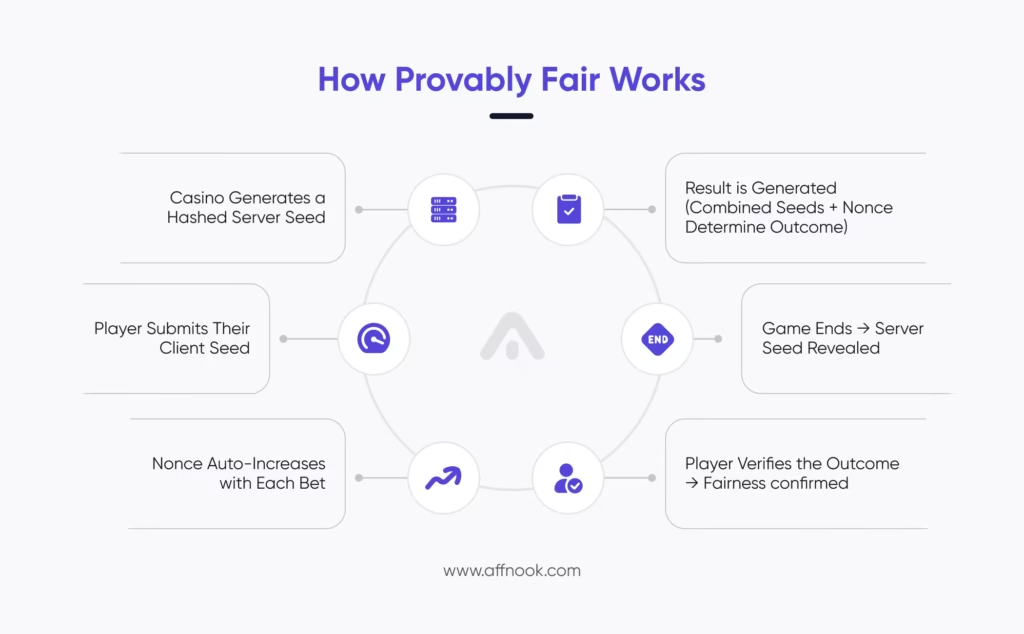
Once each game is over, the casino reveals the original server seed. At this point, the player can use independent verification tools to combine all three aspects and check whether the outcome matches the one they were given.
Trustless Transparency: What Blockchain Adds to Game Fairness
Blockchain takes this conception of fairness one step further.
When the entire game logic is placed on a public ledger — by nature, becoming decentralized — then a ‘trustless’ society is created. Since the ledger is placed in public record, it is impossible for iGaming operators or brands to mess with outcomes or change the record.
When players feel more in charge and assured of reliable outcomes, they’re likely to be more invested, play for longer durations without worry and return more often to the site.
Limitations in Using Provably Fair Checks
The one limitation in applying this across the board is: it simply doesn’t work.
Complex video slots with multiple paylines and features are difficult to implement with this technology.
Additionally, some operators now use this term as a gimmick, to attract users. However, checking of this manner may not actually be possible on their online gambling website. Players need to be sharp to avoid such instances.
Third-Party Audits, Game Certification & Real-Time Monitoring
Instead of looking at fairness as a one-time thing, online casinos and gambling websites must maintain ongoing checks and balances.
Who Does Them and Why Do They Matter?
The same third party agencies that provide RNG certifications, also conduct independent audits that certify fairness, or lack of it. Here’s the scope of items they review:
- RTP Verification
Thousands of game rounds are reviewed to check for fairness across multiple gameplays. This ensures that the promised RTP is exactly what the actual one turns out to be.
- Operational Audits
Herein, they check the entire ecosystem of the iGaming operation to see whether the rules and requirements of licensing are being met or not.
- Game Integrity
Finally, reviews can be conducted to identify whether technical glitches or bugs in the site’s software are affecting the level of fairness on a given online gambling website.
It is also crucial to note that these are standard practices across the regulated iGaming market. eCOGRA, for instance, has audited over 400 online gambling sites, providing a layer of security and trust for millions of players.
Using Emerging Tools
As technology moves forward, so do the ways of incorporating dishonesty or fairness into any system. It applies to online casinos too.
AI and ML are the two most recent technologies bridging the fairness gap for businesses (and users). Using predictive analytics, and deep learning-based insights, businesses can learn a lot about the outcomes their games enable for users.
They can proverbially show a mirror to operators and brands by picking up on:
- Game patterns that cause unusual outcomes,
- Player behaviours that can disrupt algorithm flows,
- Anomalies in the application of RTP rules, or
- Glitches that are causing outcomes that go beyond the set norms.
User-Centric Feedback Loops: Reviews, Forums & Watchdogs
Fairness also goes beyond simple rule setting and algorithm checks. The implementation’s outcome needs to be monitored too. You may be right in your place — but are users experiencing it?
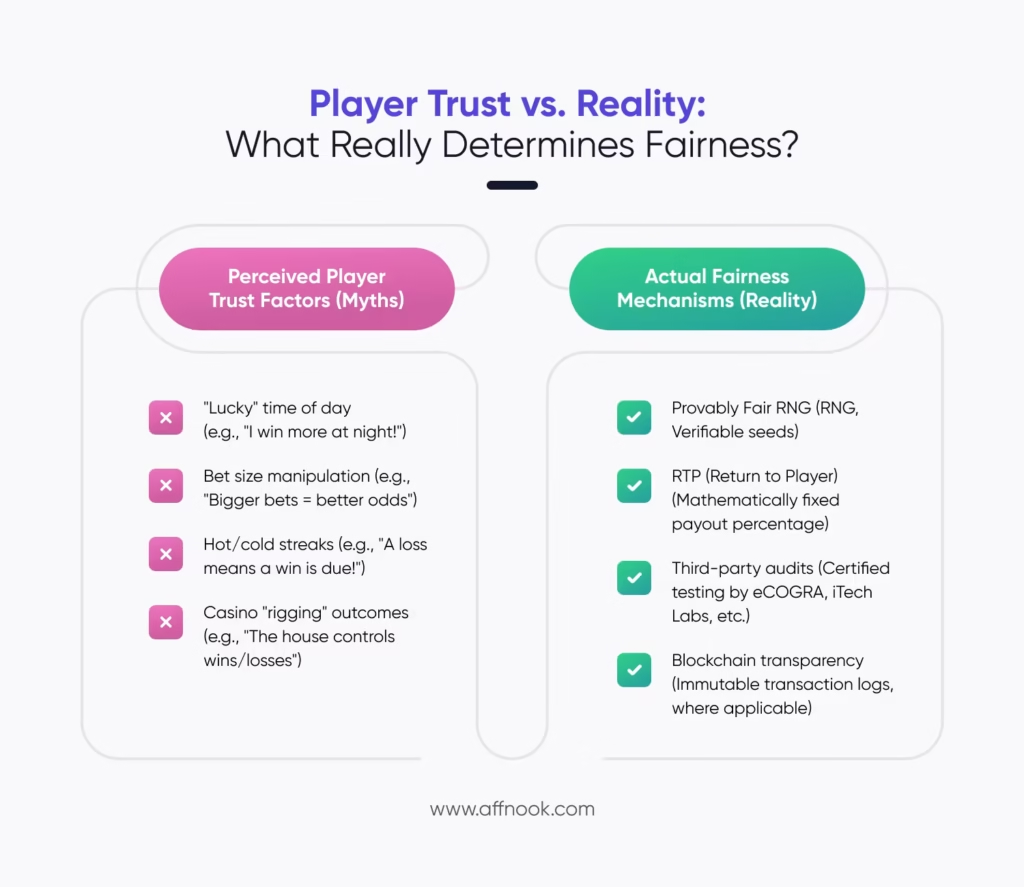
How Community-driven Flagging Happens
The modern player is not an island. They are highly connected, social media-savvy individuals who will stop using your online gambling website and let everyone know why. Here’s where information of such nature is exchanged freely:
- Dedicated iGaming Forums
AskGamblers and CasinoMeister act as unofficial watchdogs in the online gambling community. A well-documented, single complaint on either of these platforms is enough to make your iGaming website stand out for all the wrong reasons. In fact, your casino could even be investigated (if regulators find out) and you risk being blacklisted.
- Social Media and Community Hubs
Twitter threads and conversations on r/onlinegambling carry plenty of weight and are known for being hubs of grassroots reporting. Players look out for each other by sharing their experiences with various online gambling businesses. Too many similar reports for your site means you could be treading muddy waters.
- Affiliate Review Sites
Players trust affiliate sites to guide them to reputable operators. When users leave negative comments on these reviews, it directly impacts the user acquisition for the operator and damages credibility.
How to Track and Respond in a Timely Manner
You can’t ignore such feedback. What you can do is get ahead of the negative attention and respond in a timely way.
- Use Social Listening Tools
Something as simple as Google Alerts can be set to track mentions of your online gambling website url or brand name. This way your team can catch conversations before they escalate. Pick out positive conversations to amplify, and limit damage from the negative ones.
- Assign Dedicated Resources
Create a role within your operation to locate and address such instances. A community manager or a customer support team member can be assigned to spot and work on such social mentions. The idea is not to placate angry users, but to be present for your users, and solve their problems transparently.
- Create a Protocol for Response
When certain instances or issues are highlighted publicly, there should be an SOP on how to manage the situation effectively. From timelines to private responses, everything should be available for the concerned responder in advance.
For instance, if players on tablets flag certain games on your website as laggy (affecting payment or bet placement), the correct approach would be to initiate direct message conversations with them. Identify the exact challenge in gameplay on your online gambling website, and inform internal stakeholders about the issue.
Then, create a clear roadmap or add it to a sprint for the development team. Once your team figures out how to make your online gambling site responsive, you can let the concerned users know, and share a public announcement informing all engaged players about it too.
Social Feedback as an Operational Asset
Your perspective will define the outcome. Social feedback can be a crucial cog in the operational wheel, allowing you to be on your a-game at all times.
- Catch bugs or glitches
- Locate unclear bonus terms
- Know about payment processor issues
Use Case for Affiliate Networks: Partner Validation
For affiliate networks, the community’s voice is a primary tool for due diligence. Before onboarding a new casino or iGaming brand, the concerned affiliate manager can thoroughly vet what chatter online says.
Several complaints about fairness or aspects which affect it indirectly can be a cause for concern. An affiliate reputation is tied to the brands and operations they promote. Not only will they experience poor LTV, but their commissions too will drop as a result.
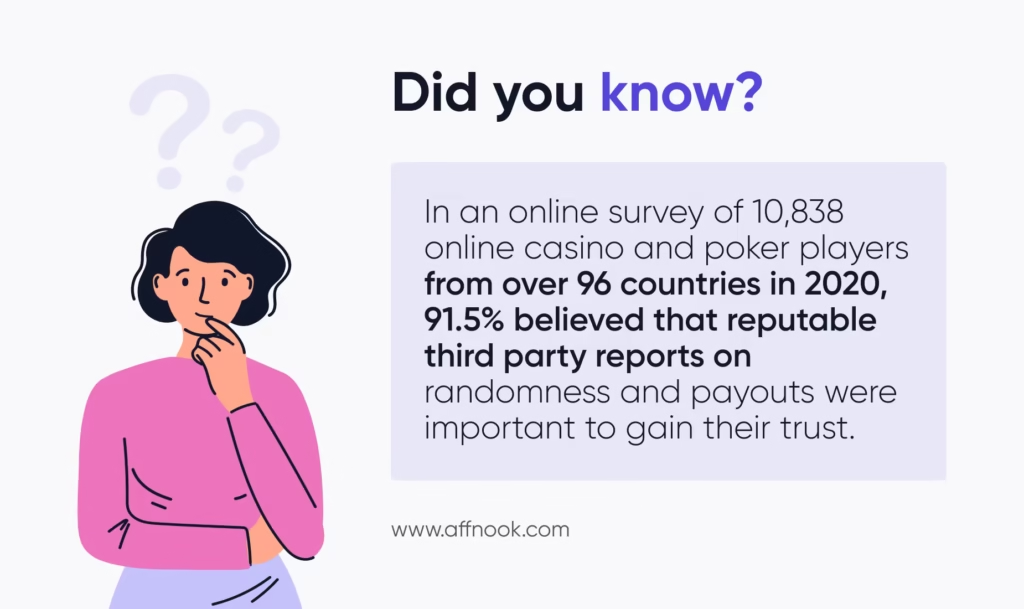
Therefore, if brands or operators face repeated issues and user flagging with respect to their existing online gambling website design (such as reloading on spin, or unresponsive zones), it is vital to address them so that acquisition and retention efforts are not going to waste.
Summing Up
Launch your iGaming business with a stable, high performing website that is built on a bedrock of:
- RNG license
- Valid regulatory licensing for all your target markets
- Return to player validation
Ensure you’re following through on compliance norms so marketing your business through methods like affiliate marketing don’t bog you down. Keep a check on what legitimate users of your platform have to say about you, and ensure player satisfaction is a key component of your overall operational strategy.
Fairness — or the expectation of its existence — should not be treated as an unfair burden by operators and brands. Instead, it should be a vital element for brand building, operating, expanding and marketing.
Without it, there is no brand reputation, conversion, user retention or growth.
Find out how to incorporate compliance and regulatory expectations into your affiliate promotion strategy to further bolster your brand by using Affnook. Whether you’re an iGaming operator, brand or affiliate network looking to better manage your affiliate program, connect with us today.
Help Centre
What makes an online gambling website fair for players?
A website that is created to ensure fairness comes with RNG certification, transparent RTP and proper, valid licensing. That way users know the outcomes are unbiased and random. Promoting and guaranteeing fairplay gives operators and brands a better chance of attracting new players and keeping them around for longer.
How do RNGs work in an iGaming site?
Random number generators or RNGs ensure every card dealt, every spin made and every dice thrown leads to completely random, unknown outcomes, which cannot be predicted. Whether you use a pseudo RNG or a true RNG, the result is the same — elimination of manipulation.
Why is RTP important for any online casino?
Return to player (RTP) tells players how much they’ll get back over time based on the amount wagered by them. If a site claims an 80% RTP, this means for every $100 wagered, they’ll get back $80 over a period of time. This transparency and clarity of communication gives users faith in the honesty and integrity of the online casino they are patronizing.
How can the ‘fairness’ of an online gambling website be verified?
Third-party RNG certifications, RTP audits, and visible licenses are some relevant methods of verifying the ‘fairness’ on any iGaming site. Such methods help vet the possibility of cheating from an iGaming website. Some websites also offer a blockchain method to check for fairness, that includes the ‘provably fair’ method of verification.
How does blockchain improve fairness on an iGaming website?
Blockchain enables ‘provably’ fair games on an online gambling site by publishing game logic and outcomes on a public ledger. This prevents manipulation, ensures transparency, and builds user trust, especially in markets where players value decentralization and independent verification.
